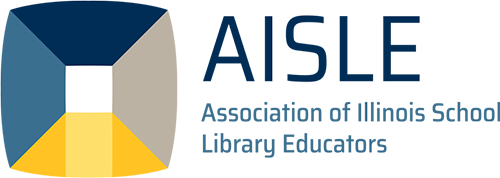Intellectual Freedom Resource Toolkit
Materials Challenges And Censorship
- Top 10 Most Challenged Books
http://www.ala.org/bbooks/frequentlychallengedbooks
Each spring, ALA releases its list of most frequently challenged books from the previous year. - Banned Books Week
http://www.ala.org/advocacy/banned/bannedbooksweek
In late September, ALA and partner organizations sponsor a week-long observance of our freedom to read and the threat of censorship. - Banned Websites Awareness Day
http://www.ala.org/aasl/advocacy/bwad
Censorship extends beyond our print collections and AASL is working to increase awareness of restrictions to websites and online resources. - Reporting a Challenge
http://www.ala.org/advocacy/banned/challengeslibrarymaterials/challengereporting
Support for challenges—and even possible challenges—is available confidentially from ALA. Even if you do not require support, please report your challenge. Contact information and support materials are available here. - Be Prepared!
http://www.ala.org/advocacy/banned/challengeslibrarymaterials/essentialpreparation
Don’t be caught by surprise. Have your collection development policy and reconsideration request (i.e., challenge form) available to share. - What If Forum at University of Wisconsin’s Cooperative Children’s Book Center
http://www.education.wisc.edu/ccbc/freedom/whatif/default.asp
The scenarios presented here will help librarians anticipate and address common intellectual freedom concerns.
Lesson Plans About Censorship
- A Case for Reading: Examining Challenged and Banned Books—Grades 3-8
http://www.readwritethink.org/classroom-resources/lesson-plans/case-reading-examiningchallenged- 410.html - Censorship in the Classroom: Understanding Controversial Issues—Grades 9-12
http://www.readwritethink.org/classroom-resources/lesson-plans/case-reading-examiningchallenged- 410.html - Also see ReadWriteThink for lessons on specific authors, including Laurie Anderson and JK Rowling.
LMC 2.0
- Developing Social Media Guidelines [PDF file]
ISLMA’s IF Task Force offers pointers on how to frame social media guidelines for your school library. - “How to Create Social Media Guidelines for Your School”
http://www.edutopia.org/pdfs/edutopia-anderson-social-media-guidelines.pdf
Steven Anderson, a technology instructor and consultant, collaborated with Facebook on these clearly explained guidelines. He also shares bookmarks on social media in education:
http://www.diigo.com/user/stevenanderson/socialmedia - Social Media Guidelines for Schools (a wiki)
http://socialmediaguidelines.pbworks.com
This wiki offers a glimpse at an early effort to collaboratively develop guidelines for social media use in schools. - Social Media Guidelines for Schools
http://thinkingmachine.pbworks.com/w/page/22187719/Think%20Social%20Media%20Guidelines
Karen Montgomery and Wesley Fryer presented these recommendations at the 2011 Teaching the 21st Century Student conference. - AASL White Paper on Educational Technology in Schools
http://www.ala.org/aasl/aaslissues/positionstatements/tech-white-paper
This newly released position statement from AASL embraces the growing list of technology tools available to 21st century learners and addresses how schools might enact policies to best utilize them.
Access And Diversity
- ASCLA Library Accessibility–What You Need to Know:
http://www.ala.org/ascla/asclaprotools/accessibilitytipsheets/
This website offers tipsheets for assisting patrons with disabilities or special needs. - Universal Design for Learning Guidelines for Libraries
http://www.udlcenter.org/aboutudl/udlguidelines/downloads
This website offers a framework for creating learning environments that accommodate all learning styles. - “Restricted Access to Library Materials: An Interpretation of the Library Bill of Rights”
http://ifmanual.org/restrictedaccess
This excerpt from ALA’s Intellectual Freedom Manual offers a useful consideration of the various ways in which materials are restricted, sometimes unconsciously. - Everyone’s Special: Equal Opportunities for all Students to Learn
http://www.ala.org/aasl/sites/ala.org.aasl/files/content/aaslpubsandjournals/knowledgequest/docs/ KQ_30_3_JanFeb11_WEB.pdf
This excellent issue of AASL’s Knowledge Quest contains articles and resources to support a wide range of student needs. - Information for Libraries and Librarians Serving Latinos & Spanish-Speaking Communities:
http://reforma.membershipsoftware.org/content.asp?pl=9&sl=59&contentid=59
For more than 40 years, Reforma has been instrumental in the development of library programs that support Spanish language readers and speakers. - Professional Development Tools/Multicultural Resources (ALA):
http://www.ala.org/Template.cfm?Section=diversitytools&template=/ContentManagement/ContentDisplay.cfm&ContentID=109562
ALA provides a listing of professional organizations, online and print resources to support diverse library constituents.
Position Statements
- “Access to Resources and Services in the School Library Media Program: An Interpretation of the Library Bill of Rights” (ALA)
http://www.ala.org/advocacy/intfreedom/librarybill/interpretations/accessresources
How does the school setting impact the rights of library users? - “Access to Library Resources and Services Regardless of Sex, Gender Identity, or Sexual Orientation: An Interpretation of the Library Bill of Rights” (ALA)
http://www.ala.org/advocacy/intfreedom/librarybill/interpretations/accesslibrary - “Confidentiality of Library Records” (AASL)
http://www.ala.org/aasl/aaslissues/positionstatements/conflibrecds
Do you use open holds or send open library notices through a third party? It may be time to reconsider patron privacy. - “Labeling in School Libraries” (AASL)
http://www.ala.org/aasl/aaslissues/positionstatements/labeling
With increased focus on standardized testing and reading by level, this statement is a useful reminder of the essence of library organization. - “Language Rights in the 21st Century” (Reforma)
http://reforma.membershipsoftware.org/content.asp?pl=51&sl=8&contentid=65
Reforma is an organization that advocates for the rights of Spanish language readers and speakers. - “Position Statement on Flexible Scheduling” (AASL)
http://www.ala.org/aasl/aaslissues/positionstatements/flexsched
Every librarian should have this statement ready to share with administrators and decision makers within their schools.
